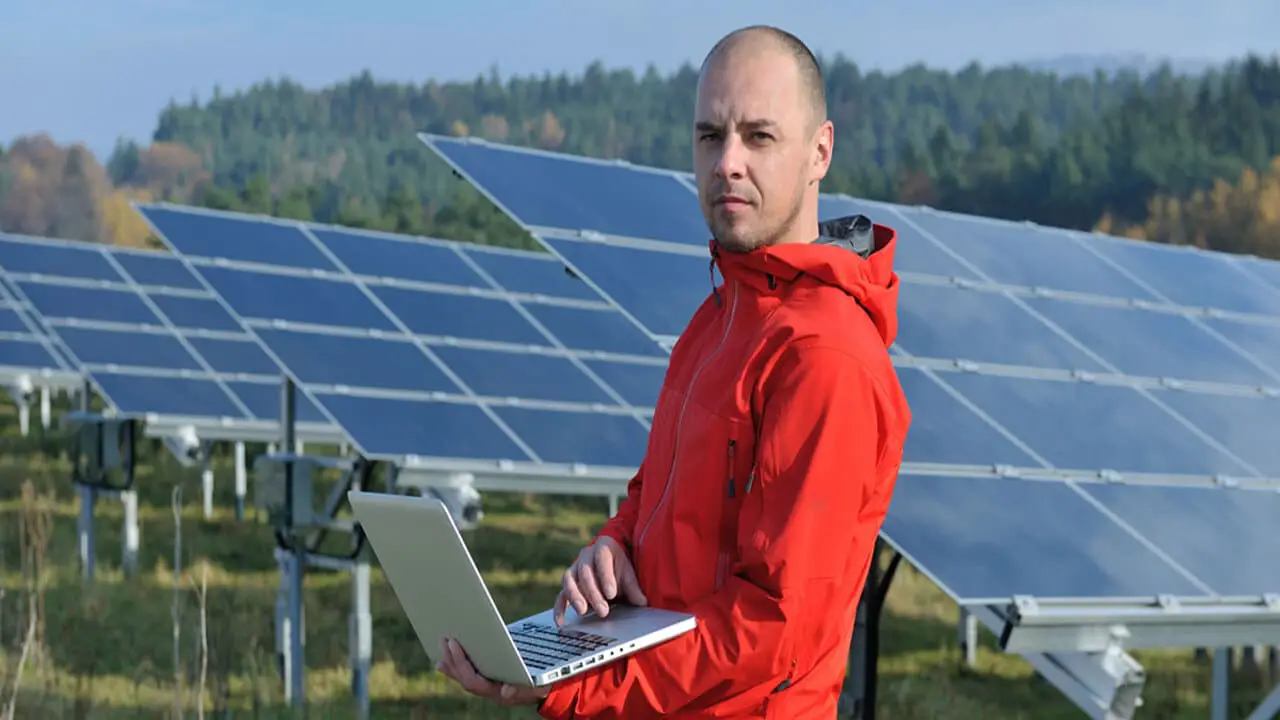In a world where the pursuit of sustainable solutions has taken center stage, the importance of renewable energy has transcended its status as a mere alternative and has become a necessity.
As traditional energy sources reveal their limitations and environmental consequences, the demand for experts in renewable energy continues to grow.
This article delves into the realm of pursuing a master’s degree in renewable energy, focusing on the institutions that stand out as pioneers in shaping the future of clean energy.
Choosing to pursue a master’s degree in renewable energy is not just a decision to further one’s education – it’s a commitment to addressing one of the most critical challenges of our time.
By exploring the finest universities renowned for their exceptional programs in renewable energy, we can gain insights into how these institutions are shaping the next generation of professionals who will drive innovation, push the boundaries of technology, and lead the global transition to sustainable energy sources.
Criteria for Evaluating Universities
When embarking on the journey to pursue a master’s degree in renewable energy, selecting the right university is paramount.
The following criteria will serve as a guide in evaluating institutions, ensuring that your educational experience aligns with your career aspirations and the rapidly evolving landscape of renewable energy.
- Program Reputation and Accreditation: A university’s reputation is often indicative of the quality of its renewable energy program. Seek institutions that have a strong track record of producing graduates who have made substantial contributions to the field. Accreditation from relevant bodies adds credibility and ensures that the program meets certain educational standards.
- Faculty Expertise and Research: The expertise of faculty members plays a crucial role in shaping your learning experience. Look for universities with professors who are respected researchers and professionals in the renewable energy domain. Institutions with active research initiatives and publications demonstrate a commitment to advancing the field’s knowledge.
- Research Facilities and Resources: Access to modern research facilities and resources can significantly enhance your understanding of renewable energy concepts. Investigate universities that invest in laboratories, equipment, and simulation tools dedicated to renewable energy research. A well-equipped campus can provide hands-on experience that complements classroom learning.
- Industry Connections and Partnerships: Universities with strong ties to the renewable energy industry offer valuable networking opportunities. Look for institutions that collaborate with energy companies, research organizations, and government agencies. These partnerships can lead to internships, collaborative projects, and exposure to real-world challenges in the renewable energy sector.
- Alumni Success and Career Outcomes: The success of a program’s alumni can reflect the effectiveness of its education. Research the career paths of graduates from the renewable energy program – are they making significant contributions in various roles within the industry? A strong alumni network can provide mentorship, job leads, and insights into the current job market.
Top Universities for Masters in Renewable Energy

As the world faces the imperative of transitioning to sustainable energy sources, pursuing a master’s degree in renewable energy has become a vital pathway for individuals aspiring to contribute to this global transformation.
Let’s delve deeper into some of the top universities renowned for their exceptional programs in renewable energy, preparing students to drive innovation, research, and policy in the field.
1. Stanford University
Stanford University, founded in 1885 in the heart of California’s Silicon Valley, is synonymous with innovation. With its rich history deeply rooted in the pioneering spirit of the West Coast, Stanford has become a crucible of cutting-edge research and education.
The campus culture thrives on innovation and interdisciplinary collaboration, enabling students to explore the intersection of various disciplines.
Stanford’s reputation for fostering entrepreneurship is amplified by its strategic location, allowing students to engage with industry leaders, startups, and tech giants.
Notably, Dr. Sally Benson, co-director of the Precourt Institute for Energy, stands as a notable faculty member, leading the charge in carbon capture and storage research.
This exemplifies Stanford’s dedication to impactful solutions for global sustainability. Moreover, the university’s Precourt Institute for Energy and TomKat Center for Sustainable Energy provides students with access to state-of-the-art facilities and resources.
The campus’s proximity to Silicon Valley offers unique internship and collaboration opportunities, enabling students to convert theoretical knowledge into real-world applications, making Stanford a dynamic hub for those driven by renewable energy solutions.
2. Technical University of Denmark (DTU)
Technical University of Denmark (DTU), established in 1829 near Copenhagen, Denmark, boasts a legacy of engineering excellence and technological advancement. Renowned globally, DTU’s expertise in renewable energy is showcased through its wind energy program.
The university’s campus culture is characterized by practical learning and collaborative problem-solving, thanks to its “Challenge-Based Learning” approach.
Students collaborate with industry partners on real-world challenges, honing skills that are readily applicable in the renewable energy sector. Dr. Jens Nørkær Sørensen, a distinguished faculty member, epitomizes DTU’s leadership in wind energy research, focusing on offshore wind energy.
This aligns seamlessly with Denmark’s status as a global leader in wind technology. DTU’s WindLab, coupled with its proximity to offshore wind farms, provides students with unparalleled exposure to wind energy technology, preparing them to tackle real-world challenges in the field.
The university’s commitment to industry partnerships ensures that graduates possess the practical skills and insights needed to excel in the renewable energy landscape.
3. Delft University of Technology (TU Delft)
Delft University of Technology (TU Delft), established in 1842 in the Netherlands, has cultivated a reputation for scientific discovery and technological innovation. Nestled in the enchanting city of Delft, TU Delft’s campus culture thrives on interdisciplinary collaboration and practical learning.
Students are encouraged to transcend disciplinary boundaries, fostering a holistic understanding of complex challenges.
The Photovoltaic Materials and Devices group, led by Professor Arno Smets, embodies TU Delft’s commitment to advancing renewable energy technologies. Through this group, students gain access to cutting-edge solar energy research facilities.
The university’s strong industry connections create pathways for internships, real-world projects, and collaborations, ensuring that graduates possess both theoretical knowledge and practical skills essential for driving innovation in the renewable energy sector.
TU Delft’s central location, combined with its multidisciplinary approach, positions it as a catalyst for aspiring renewable energy leaders seeking a transformative educational experience.
4. Massachusetts Institute of Technology (MIT)
Massachusetts Institute of Technology (MIT), founded in 1861 in Cambridge, Massachusetts, is an iconic name in technological innovation. Located within the thriving Boston metropolitan area, MIT’s legacy is a testament to its transformative impact on various fields.
The campus culture thrives on innovation and cross-disciplinary collaboration, fostering an environment where students explore the convergence of diverse disciplines.
Dr. Angela Belcher, a luminary in bioengineering, embodies MIT’s dedication to innovation. Her work leveraging biological processes for sustainable energy solutions exemplifies MIT’s commitment to pioneering research.
The Energy Initiative (MITEI) and Tata Center offer students avenues for interdisciplinary research, aided by state-of-the-art facilities.
MIT’s close proximity to technological giants and startups ensures a constant stream of networking opportunities, internships, and mentorship, translating renewable energy knowledge into impactful real-world applications.
5. Imperial College London
Imperial College London, established in 1907 in the heart of the UK’s capital, is synonymous with scientific excellence.
Imperial’s legacy of groundbreaking research continues to shape its reputation as a pioneer in education and innovation. The campus culture is characterized by rigorous research and cross-disciplinary collaboration.
Students from diverse academic backgrounds converge to address global challenges, fostering an atmosphere of curiosity and innovation. Dr. Nilay Shah, a prominent figure in energy systems optimization, epitomizes Imperial’s commitment to impactful research.
His work aligns seamlessly with the college’s dedication to solving real-world energy challenges. Imperial’s Energy Futures Lab provides a platform for interdisciplinary research, facilitating collaboration among students and faculty.
Situated in one of the world’s most dynamic and diverse cities, Imperial’s London location enhances networking and industry engagement, offering students a direct gateway to the global energy sector.
The college’s strong ties to London’s energy landscape provide exposure to a wide range of energy challenges and solutions, positioning graduates as change-makers in the renewable energy arena.
Emerging Trends in Renewable Energy Education
The landscape of renewable energy education is evolving rapidly to address the pressing global need for sustainable solutions.
As the world seeks to transition from fossil fuels to cleaner energy sources, educational institutions are adapting their curricula to equip students with the knowledge and skills necessary to drive this transformation.
Here are some emerging trends shaping the realm of renewable energy education:
- Interdisciplinary Curriculum: The complex nature of renewable energy solutions necessitates a multidisciplinary approach. Emerging trends in education emphasize cross-disciplinary collaboration, integrating fields such as engineering, environmental science, policy, economics, and data analytics. Students are encouraged to view renewable energy challenges from various angles, fostering holistic understanding and innovative problem-solving.
- Technological Integration: With advancements in renewable energy technologies like solar, wind, hydro, and geothermal, education is incorporating hands-on experiences with cutting-edge equipment. Virtual laboratories, simulators, and interactive software platforms allow students to engage with these technologies in a controlled environment, preparing them for real-world applications.
- Focus on Energy Storage: As renewable energy sources are intermittent, energy storage becomes crucial for grid stability. Educational programs are increasingly emphasizing energy storage solutions like batteries, capacitors, and hydrogen technology. Students are trained to design and implement efficient energy storage systems that enhance the reliability of renewable energy integration.
- Data Analytics and AI: The renewable energy sector generates massive amounts of data. Institutions are incorporating data analytics and artificial intelligence (AI) courses into their programs, enabling students to harness insights from data to optimize energy systems, predict trends, and enhance energy efficiency.
- Policy and Regulatory Understanding: The success of renewable energy projects often hinges on navigating intricate policy and regulatory landscapes. Education now places greater emphasis on understanding energy policies, regulations, and incentives, equipping students to advocate for and implement sustainable energy solutions within legal frameworks.
- Climate Change and Sustainability Integration: The urgency of addressing climate change is pushing institutions to incorporate sustainability principles across various disciplines. Renewable energy education is increasingly intertwined with broader sustainability concepts, highlighting the interconnectedness of environmental, social, and economic aspects.
Conclusion
In the realm of renewable energy education, these emerging trends illuminate a path toward a more sustainable future.
As the world grapples with the urgency of addressing climate change and transitioning to cleaner energy sources, interdisciplinary curricula, technological integration, and a focus on data analytics and policy comprehension are shaping a new generation of informed and innovative leaders.
With a global community of learners and industry collaborations, education is poised to be a driving force in propelling the renewable energy revolution forward, ensuring a brighter and more sustainable tomorrow.
Additional Posts:

